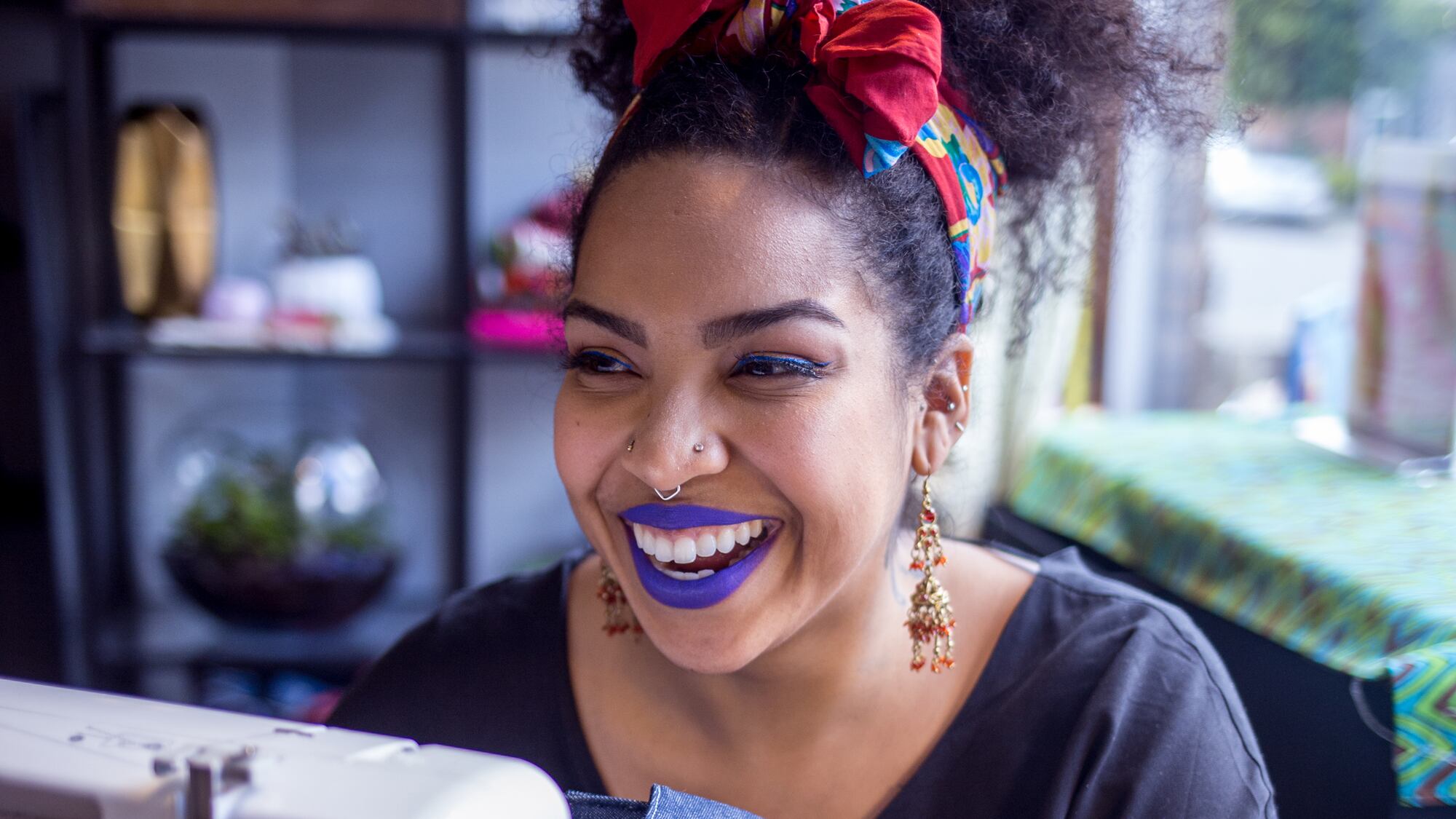For anyone looking to outsource clothing production in Portland, options are limited. Designers who have an idea for their first apparel collection, or just want to salvage their grandfather's Army pants, often approach Drea Johnson, owner of Hidden Opulence Design House.
Johnson's services range from one-off seamstressing and vintage reconstruction to producing whole collections for Portland designers. As she puts it, she's "trying my best to let everybody have a dream."
Johnson talked to WW about the politics of the fashion industry, the barriers she's breaking and why seamstressing and tailoring shouldn't be only for the rich.

WW: What does Hidden Opulence mean to you?
Drea Johnson: I decided on the brand name Hidden Opulence Design House because I feel like I've always sought out the silver lining in everything. It's those hidden gems planted throughout your life that always put everything else into perspective. As far as the brand, I just want to remind folks that instead of shopping around, they've probably already got opulence hidden in their closets.

How do you gain exposure for your business?
It's honestly kind of tough to gain exposure if your style isn't the Portland minimal norm. There's nothing wrong with that aesthetic, but I had to remind myself that that's not who I am personally, and that's OK. I'm attracted to loud, colorful and gaudy—it's in my culture. I had to trust my gut and stop trying to find a "box" that I fit into. I think it's important to mention there being a sensitivity to people of color's narrative due our political climate, and I think that's why, once I started trusting myself to be myself, doors just started opening up. It feels good to know that other folks "see" me.

How do you find the local industry, especially coming from Los Angeles?
I feel like everyone wants to produce locally until they realize there aren't that many places to produce here in the city. It's certainly possible, but it increases the cost of your goods. Coming from LA—mind my exaggeration, but I promise it's to scale—it feels like you can throw a rock and hit a factory that can serve either a pre-production or production service. There is no lack of scarcity, so people are competing to create the lowest possible production price.
Navigating Portland's industry has been interesting but rewarding. I've never really felt valued for my skills, and each new client I receive really makes me feel valued. Things are slower, the relationships are deeper and much more intentional, and I love that. It's essentially a town, and I think it's a refreshing ego check that larger industries don't have.

The fashion industry is rooted in exclusivity. Do you find that true here?
I think Portland is doing a better job of giving everyone a space and opportunity to showcase themselves. There are tons of opportunities to collaborate if you have the drive and passion. I think having a dog-eat-dog mentality won't do you any good in a place like Portland. Everyone crosses paths with you at some point. I do feel like folks reach a point of being a household name and feel above others. You gotta remember, it's Portland. You're just a big fish in a small pond. It is possible to coexist and mingle with the smaller fish.

If someone gets a tear in a piece of clothing, what draws them to a tailor or seamstress instead of simply replacing the item?
I'm in a profession where the basic tools haven't changed for hundreds of years. Fast fashion is the worst thing to happen to the industry, in my opinion. It's an overproduction of poorly constructed garments with poor-quality materials. Most folks don't even think their goods are worth fixing because they've been told it's a disposable item. Wear this one season and throw it away. People are under the perception that their bodies are the thing that need changing, when it's the clothes that need altering or tailoring.

Fixing it or upcycling it is definitely part of brand ideology. In my seamstress work, my forte has become vintage apparel. These are the gems that have made it through decades of wear. I enjoy deconstructing and reconstructing these pieces because I learn so much. I also feel like people think of the words tailor and seamstress and think only a certain class of citizens have access to me. That's so not true! I want my services to be accessible to everyone. Fashion is about expressing your personal style, not the amount of money in your wallet.

MORE: Find Hidden Opulence Design House at hiddenopulence.com.

